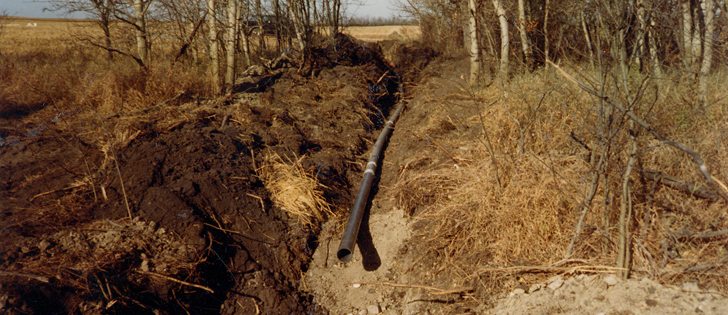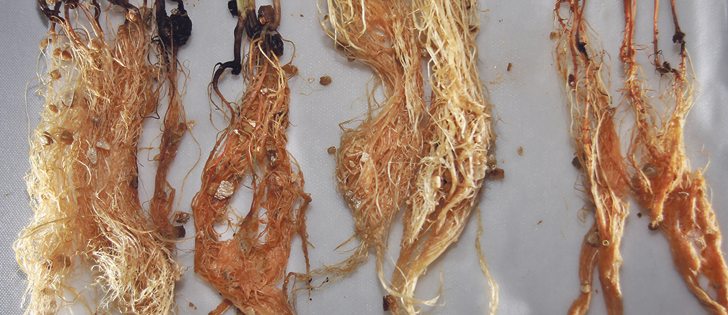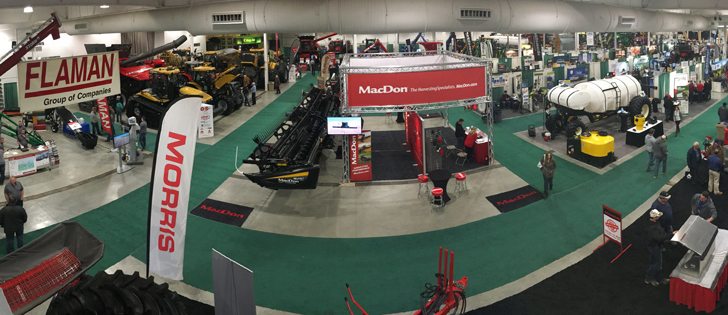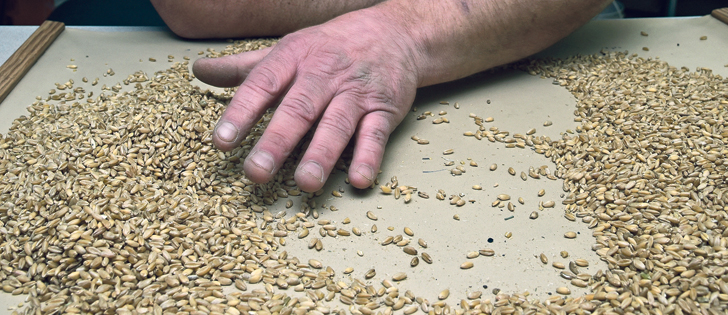All of Saskatchewan’s major crop organizations passed a resolution at CropSphere last week calling on the province to rescind or delay implementation of Bill 44.
The bill supports the province’s new agricultural water management strategy and regulations that were implemented in October 2015.
Franck Groeneweg, director of the Saskatchewan Farm Stewardship Association, was running between meeting rooms at CropSphere presenting the resolution.
He said the new policy requires farmers to get permits for all the drainage works on their property, with few exceptions.
Read Also

Farming Smarter receives financial boost from Alberta government for potato research
Farming Smarter near Lethbridge got a boost to its research equipment, thanks to the Alberta government’s increase in funding for research associations.
“All these little ditches and whatever are now illegal,” Groeneweg told flax growers.
He estimates there is non-permitted drainage on 150,000 quarters of land throughout the province.
Groeneweg is also concerned about the loss of the Water Appeal Board.
“It gives a very heavy hand to the Water Security Agency,” he said.
He said the Quill Lakes area is the canary in the coal mine. Last year, the Water Security Agency ordered the closure of all unapproved drainage ditches in the two million acre basin and imposed a moratorium on any new projects.
“When we see what Water Security could do to these farmers, I do not trust them to be in charge of the water policy for the rest of the province,” he told pulse growers.
Jeff Pylatuik farms within the Quill Lakes basin, which has received more than 5,100 millimetres of rain in the last 10 years.
He said the province’s new water management policy will take 20 to 25 percent of his acres out of production.
“That would put me in the position of complete loss of profit,” said Pylatuik.
“It would destroy my farm.”
He said the Quill Lakes are overflowing due to the unprecedented rainfall. It has nothing to do with farm drainage.
Pylatuik argued that the crops he grows consume more water per acre than is stored in the many sloughs scattered across his land.
Saskatchewan Environment Minister Scott Moe said the organizations that passed the resolution were all consulted when the new regulations were being drafted in 2012.
He said he plans to reach out to the organizations soon because there seems to be confusion about Bill 44 and the regulations it will enforce.
The goal of the new policy is to control and organize water flow into the province’s streams and creeks. The old strategy implemented in 1986 was a complaints-based system.
“We tried to streamline this system and change it from that complaints-based system to a permit-based system,” said Moe.
That explains why the province is getting rid of the appeal board.
“The appeal board has become somewhat redundant with a system that is based on permits as opposed to in-depth complaints,” he said.
He said he has also heard that some farmers are concerned that all drainage ditches created before 1981 will need to be permitted. They were exempt under the old rules.
“The reasoning behind that is that a works that is moving water will move exactly the same amount of water whether it was built pre-1981 or post-1981,” said the minister.
Lastly, there was plenty of consternation about fines for non-compliance increasing from a maximum of $10,000 to $1 million.
Moe said that was initiated because the fines will now be enforced through the Environmental Management and Protection Act, the same act that governs landfills and shorelines.
The fines are no longer administered by the Water Security Agency and will be administered by a judge through court action. Moe said he can’t recall a fine that has ever been close to $1 million.
Myles Thorpe, president of the Saskatchewan Farm Stewardship Association, said water management policy has massive financial implications.
The difference between managed and unmanaged fields on his farm near Spy Hill, Sask., is $85 per acre. He figures $1.9 billion would be lost to the Saskatchewan economy if farmers weren’t allowed to properly drain water from their land.
Thorpe said a lot of unanswered questions remain about the new regulations and the bill that will enforce them, such as what defines an adequate outlet and whether farmers are allowed to infill.
Another area of concern is that the balance of power is shifting to the Water Security Agency.
“The landowner doesn’t have a lot of power left when you read the bill,” he said.
Part of the reason the association drafted the resolution that made the rounds at CropSphere was to create awareness about the water management rule changes.
“A lot of people didn’t know there was any changes happening,” said Thorpe.
The bill is heading for a second reading this spring and then will be debated in the legislature.
“We’re hoping to make amendments to this bill and we need changes to the overall policy too,” he said.


















